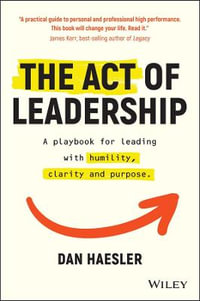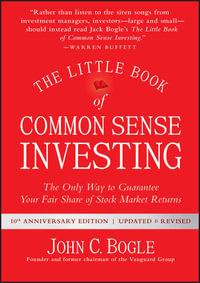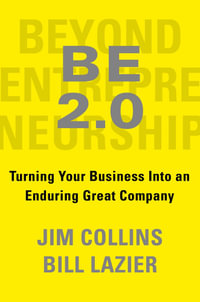"In this important work the concept of leadership is refracted through the lens of the paradoxes of power. By doing so the authors provide an honest nuanced account of the dilemmas of leadership, while providing a sophisticated set of conceptual tools to deal with these challenges. This work is a 'must read' for leaders and academics that wish to understand the elusive phenomenon of effective leadership."
Professor Mark Haugaard, National University of Ireland, Galway. Editor of the Journal of Political Power, Routledge
"The authors of this book have managed to imbue their work with admirable contrarian qualities. They are complexifying leadership as a relational-paradoxical practice and draw broadly across several fields of social science, while at the same time writing in light-hearted and accessible prose. The book is at once enlightening and entertaining, providing inroads to the nuances and depths of the research front while also attending to consequences for action. As a result, the book feels like a journey through leadership paradoxes that walks the talks. Recommended!"
Arne Carlsen, Professor at BI Norwegian Business School, Norway
"While most leadership books distil prescriptive lists of leaders' dos and don't, in their thought-provoking collaboration, Miguel Pina e Cunha, Stewart Clegg, Armenio Rego and, Marco Berti turn down this one recipe fits all approach. Rather, they take us on the path to explore leadership's complex and paradoxical nature. Relying on vivid examples and sound research, their comprehensive work unpacks the many paradoxes that any leader face. Each chapter opens yet another set of paradoxes that will strike a chord with the readers' own experience: Balancing strengths and vulnerabilities, trusting yet empowering others, advancing both individuals' and team's needs or following organization's competing strategies, to name a few. A must-read book to those interested in leading through our uncertain and rapidly changing times."
Camille Pradies, EDHEC Business School, France
"Every so often, a book comes out that scholars in the field desperately wish they had written. This is a supreme example. It places the study of paradox in the mainstream of leadership studies, a position it so rightly deserves. After this encyclopedic book, there will be no going back. Scholars, practitioners and students will find it invaluable."
Richard Badham, Macquarie Business School, Australia
"This book provides a fresh new approach to leadership. The authors explain leadership as a process that is inherently paradoxical. This important view takes us beyond naive and heroic views of leadership as an a-contextual set of 'effective' practices, to showing how leadership unfolds in response to paradoxes occurring at multiple levels. Grounded in both the literature on leadership and on paradox, this book extends knowledge of both areas and provides a welcome contextual understanding of leadership as complex and dynamic. In addition, it is very enjoyable read that explains these concepts well."
Paula Jarzabkowski, Professor, City, University of London
"This ground-breaking book offers a brilliant analysis of leadership in modern societies. Eschewing simple recipe-driven explanations, it describes how leadership is an inherently paradoxical practice - one requiring the effective management of contradictions. A wide-ranging and ambitious inquiry, the book is required reading for scholars and students of management and organization."
John Hassard, Professor of Organisational Analysis at Alliance MBS, University of Manchester
"This is a timely and important book, that embraces the complexity of organizational life and the increasing demands upon organizations that make leadership more important than ever, all the more so because it resists distillation to recipes and invocations. By tackling inherent contradictions in leadership head on, the authors show that wise and thoughtful leadership matters more than ever, but that in today's increasingly complex world - perhaps in any world worth living in - its essence should not and cannot be distilled to simple formulae and easy to apply principles."
David Patient, Professor of Leadership, Vlerick Business School
























